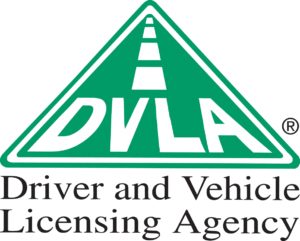Report certain types of medical conditions to DVLA if you’re a car driver or motorcyclist.
The DVLA must be notified for certain health conditions including:
- Ataxia
- essential tremor
- Friedrich’s ataxia
- Guillain Barré syndrome
- Huntington’s disease
- motor neurone disease
- multiple sclerosis
- myasthenia gravis
What happens after you tell DVLA
You’ll usually get a decision within 6 weeks. You’ll get a letter from DVLA if it’s going to take longer.
DVLA might:
- contact your doctor or consultant
- arrange for you to be examined
- ask you to take a driving assessment, or an eyesight or driving test
You can usually keep driving while DVLA are considering your application.
If you’ve told DVLA about a condition when applying to renew your licence, follow the guidance about driving that’s in the form.
Other conditions that should be reported are listed below in alphabetical order:
A
Absence seizures
Acoustic neuroma
Addison’s disease
Agoraphobia
AIDS
Alcohol problems
Alzheimer’s disease
Amyotrophic Lateral Sclerosis
Amputations
Angina
Angioma
Angioplasty
Ankylosing spondylitis
Anorexia nervosa
Anxiety
Aortic aneurysm
Arachnoid cyst
Arnold-Chiari malformation
Arrhythmia
Atrial defibrillator
Arteriovenous malformation
Arthritis
Asperger syndrome
Ataxia
Attention deficit/hyperactivity disorder (ADHD)
Autistic spectrum disorders (ASD)
B
Balloon angioplasty (leg)
Bipolar disorder
Blackouts
Blepharospasm
Blood clots
Blood pressure
Brachial plexus injury
Brain abscess, cyst or encephalitis
Brain aneurysm
Brain angioma
Brain haemorrhage
Brain injury (traumatic)
Brain tumours
Branch retinal vein occlusion
Broken limbs and driving
Burr hole surgery
C
Caesarean section
Cancer
Cataracts
Catheter ablation
Cardiac problems
Carotid artery stenosis
Cataplexy
Cerebral palsy
Chronic aortic dissection
Cognitive problems
Congenital heart disease
Convulsions
Coronary artery bypass or disease
Coronary angioplasty
Cystic fibrosis
D
Deafness
Defibrillator
Déjà vu
Dementia
Depression
Diabetes
Diabetic retinopathy
Dilated cardiomyopathy
Diplopia (double vision)
Dizziness
Drug misuse
E
Eating disorders
Empyema (brain)
Epilepsy
Essential tremor
F
Fainting
Fits
Fractured skull
Friedreich’s ataxia
G
Giddiness (recurring)
Glaucoma
Global amnesia
Grand mal seizures
Guillain-Barré syndrome
H
Head injury
Heart attack
Heart arrhythmia
Heart failure
Heart murmurs
Heart palpitations
Heart valve disease or replacement valve
Hemianopia
High blood pressure
HIV
Hodgkin’s lymphoma
Huntington’s disease
Hydrocephalus
Hypertension
Hypertrophic cardiomyopathy
Hypoglycaemia
Hypoxic brain damage
Hysterectomy
I
Implantable cardioverter defibrillator (ICD)
Intracerebral haemorrhage
Ischaemic heart disease
K
Kidney dialysis
Kidney problems
Korsakoff’s syndrome
L
Labyrinthitis
Learning difficulties
Left bundle branch block
Leukaemia
Lewy body dementia
Limb disability
Low blood sugar
Lumboperitoneal shunt
Lung cancer
Lymphoma
M
Macular degeneration
Malignant brain tumours
Malignant melanoma
Manic depressive psychosis
Marfan syndrome
Medulloblastoma
Memory problems (severe)
Meningioma
Mini-stroke
Monocular vision
Motor neurone disease
Multiple sclerosis
Myasthenia gravis
Myocardial infarction
Myoclonus
N
Narcolepsy
Night blindness
Nystagmus
O
Obsessive compulsive disorder
Obstructive sleep apnoea
Optic atrophy
Optic neuritis
P
Pacemakers
Palpitations
Paranoia
Paranoid schizophrenia
Paraplegia
Parkinson’s disease
Peripheral arterial disease
Peripheral neuropathy
Personality disorder
Petit mal seizures
Pituitary tumour
Post traumatic stress disorder (PTSD)
Psychosis
Psychotic depression
R
Renal dialysis
Retinal treatment
Retinopathy
S
Schizo-affective disorder
Schizophrenia
Scotoma
Seizures
Sight in one eye only
Sleep apnoea
Sleepiness (excessive daytime)
Spinal problems and injuries and driving
Stroke
Subarachnoid haemorrhage
Surgery
Syncope
T
Tachycardia
Temporal lobe epilepsy
Tonic clonic fits
Tourette’s syndrome
Transient global amnesia
Transient ischaemic attack (TIA)
Tunnel vision
U
Usher syndrome
V
Valve disease or replacement valve
Ventricular defibrillator
Vertigo
Vision in one eye only
Visual acuity (reduced)
Visual field defects
VP shunts
W
Wolff-Parkinson-White syndrome

